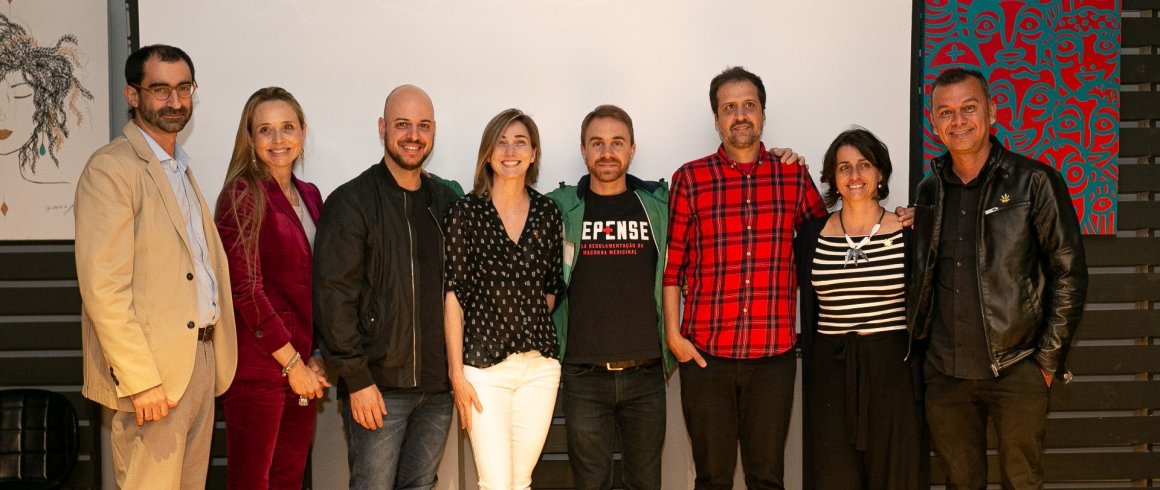Commemorative exhibition of 5 years of the film “Illegal” discusses the regulation of medicinal cannabis by the Brazilian Health Regulatory Agency (Anvisa)
Amid expectations on a vote to regulate the cultivation and commercialization of medicinal cannabis by the Brazilian Health Regulatory Agency (Anvisa), Instituto Humanitas360 and CIVI-CO organized a debate with the directors of the film “Ilegal,” mothers of patients, physicians and activists. Patrícia Villela Marino, president of H360, recalled that regulation has been the target of political disputes and emphasized the importance of considering the possibility that it will be approved. In a scenery of increased interest from investors, she notes that this maket should be grounded by a mindset that focuses on the health of people and on access to canabidiol by those who are less advantaged.
“We must give credit to the associations that have been founded over the last five years and call attention to the cannabis market that has been forming—it must be guided by a social purpose from the outset,” said Villela, who was one of the producers of the feature-length documentary.
Directed by Tarso Araújo and Raphael Erichsen, “Ilegal” portrays the struggle of mothers of patients who suffer from rare disorders for which canabidiol can provide relief from pain, seizures and other health problems. Before the exhibition of the film, Araújo and Erichsen welcomed Margarete Brito and Katiele Fischer, the mothers whose struggles are featured in the film, and presented testimonials by the journalist and activist Denis Russo Burgierman, chronic pain specialist Dr. Ricardo Ferreira and neurologist Dr. Eduardo Faveret. Cidinha Carvalho, a mother and bank clerk who received permission from the courts to plant medicinal marijuana, also spoke about her experience, as well as Cassiano Teixeira, director of Abrace Esperança, the only institution authorized to plant medicinal marijuana.
Engaged in this battle that Margarete Brito calls “peaceful civil disobedience,” they highlight how differently the subject is viewed by society five years after the release of the documentary. Despite preconceived notions about marijuana, “the film showed how it could save lives. “Ilegal” became a channel of communication that, in an artistic manner, gave people a way of understanding our struggle,” stressed Fischer.
Dr. Leon Garcia, a psychiatrist and professor at the University of São Paulo who worked for the National Department on Drug Policy when the film was released, emphasized how there can be a mismatch between the immediate needs of the public and the formulation of public policies. The role of mothers and fathers—and the patients themselves—is fundamental, above all when the science is discredited, pointed out Garcia, reiterating what one of the scientists in the film said: “The mothers were able to do what science was unable.” That is why the president of Humanitas360 emphasized that we must focus on the chain involved in the regulation of the cannabis market and on the pioneers of this story.
Tradução: Glenn Johnston

